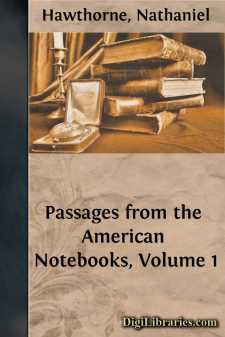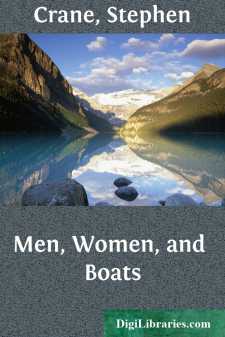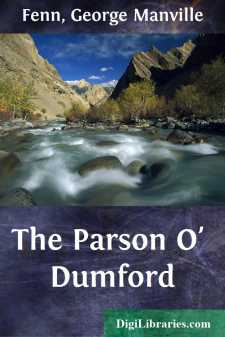Fiction
- Action & Adventure 180
- Biographical 15
- Christian 59
- Classics
- Coming of Age 5
- Contemporary Women 3
- Erotica 8
- Espionage/Intrigue 12
- Fairy Tales, Folklore & Mythology 236
- Family Life 169
- Fantasy 117
- Gay 1
- General 596
- Ghost 32
- Historical 808
- Horror 43
- Humorous 160
- Jewish 25
- Legal 4
- Medical 22
- Mystery & Detective 315
- Political 49
- Psychological 41
- Religious 64
- Romance 159
- Sagas 11
- Science Fiction 730
- Sea Stories 113
- Short Stories (single author) 537
- Sports 10
- Suspense 1
- Technological 8
- Thrillers 2
- Urban Life 31
- Visionary & Metaphysical 1
- War & Military 173
- Westerns 199
Classics Books
Sort by:
Salem, June 15, 1835.—A walk down to the Juniper. The shore of the coves strewn with bunches of sea-weed, driven in by recent winds. Eel-grass, rolled and bundled up, and entangled with it,—large marine vegetables, of an olive-color, with round, slender, snake-like stalks, four or five feet long, and nearly two feet broad: these are the herbage of the deep sea. Shoals of fishes, at a little...
more...
by:
James Townley
PARTURITION WITHOUT PAIN. For some time past, my attention has been directed to the use of anæsthetics in parturition. I had often been requested by patients to administer chloroform to them during labour, but I had seen the ill effects of this drug in one instance so strongly and almost fatally developed, that I shrank from its use. After considerable reflection on the subject, I thought that if a...
more...
by:
Harold Bindloss
CHAPTER I THE BROKEN WIRE Winter had begun and snow blew about the lonely telegraph shack where Jim Dearham studied an old French romance. He read rather by way of mental discipline than for enjoyment, and partly with the object of keeping himself awake. Life is primitive in the British Columbian bush and Jim sometimes felt he must fight against the insidious influence of the wilds. Although he had...
more...
by:
Stephen Crane
STEPHEN CRANE: AN ESTIMATE It hardly profits us to conjecture what Stephen Crane might have written about the World War had he lived. Certainly, he would have been in it, in one capacity or another. No man had a greater talent for war and personal adventure, nor a finer art in describing it. Few writers of recent times could so well describe the poetry of motion as manifested in the surge and flow of...
more...
Pleasant Receptions. “Ax.” “I was asking, or axing, as you call it, my man. I said, Is that Dumford, down there in the valley?” “And I said axe, or arks, as you call it, my man,” was the surly, defiant reply. The last speaker looked up savagely from the block of stone on which he was seated, and the questioner looked down from where he stood on the rough track. There was a quiet,...
more...
by:
Robert M. Yerkes
I INTERESTS, OPPORTUNITY AND MATERIALS Two strong interests come to expression in this report: the one in the study of the adaptive or ideational behavior of the monkeys and the apes; and the other in adequate and permanent provision for the thorough study of all aspects of the lives of these animals. The values of these interests and of the tasks which they have led me to undertake are so widely...
more...
by:
Norman Macleod
THOUGHTS ON CHRISTIANITY. I. WHAT IS CHRISTIANITY? This question refers to a matter of fact. I do not ask whether the Christian religion is true, but only, What is the Christian religion? What is that religion which has existed for eighteen centuries; which is professed by Christendom; and which has been more precious than life itself to millions who have died in its faith, and is so still to millions...
more...
by:
John Leighton
INTRODUCTORY. Late in the day of the 30th October, 1870, the agitation was great in Paris; the news had spread that the village of Le Bourget had been retaken by the Prussians. The military report had done what it could to render the pill less bitter by saying that "this village did not form a part of the system of defence," but the people though kept in ignorance perceived instinctively that...
more...
CHAPTER I. It was a bright day in the early spring of 1869. All Paris seemed to have turned out to enjoy itself. The Tuileries, the Champs Elysees, the Bois de Boulogne, swarmed with idlers. A stranger might have wondered where Toil was at work, and in what nook Poverty lurked concealed. A millionaire from the London Exchange, as he looked round on the magasins, the equipages, the dresses of the women;...
more...











